
The Falklands War was a ten-week undeclared war between Argentina and the United Kingdom in 1982 over two British dependent territories in the South Atlantic: the Falkland Islands and its territorial dependency, South Georgia and the South Sandwich Islands. The conflict began on 2 April, when Argentina invaded and occupied the Falkland Islands, followed by the invasion of South Georgia the next day. On 5 April, the British government dispatched a naval task force to engage the Argentine Navy and Air Force before making an amphibious assault on the islands. The conflict lasted 74 days and ended with an Argentine surrender on 14 June, returning the islands to British control. In total, 649 Argentine military personnel, 255 British military personnel, and three Falkland Islanders were killed during the hostilities.
This article deals with the diplomatic affairs, foreign policy and international relations of the Argentine Republic. At the political level, these matters are handled by the Ministry of Foreign Affairs, also known as the Cancillería, which answers to the President. The current Minister of Foreign Affairs, since September 2021, is Chancellor Santiago Cafiero.

ARAGeneral Belgrano (C-4) was an Argentine Navy light cruiser in service from 1951 until 1982. Originally commissioned by the U.S. Navy as USS Phoenix, she saw action in the Pacific theatre of World War II before being sold to Argentina. The vessel was the second to have been named after the Argentine founding father Manuel Belgrano (1770–1820). The first vessel was a 7,069-ton armoured cruiser completed in 1896.

The United Nations Mission in the Sudan (UNMIS) was established by the UN Security Council under Resolution 1590 of 24 March 2005, in response to the signing of the Comprehensive Peace Agreement between the government of the Sudan and the Sudan People's Liberation Movement on January 9, 2005 in Sudan.
Sovereignty over the Falkland Islands is disputed by Argentina and the United Kingdom. The British claim to sovereignty dates from 1690, when they made the first recorded landing on the islands, and the United Kingdom has exercised de facto sovereignty over the archipelago almost continuously since 1833. Argentina has long disputed this claim, having been in control of the islands for a few years prior to 1833. The dispute escalated in 1982, when Argentina invaded the islands, precipitating the Falklands War.
The ceasefire attempts during the 2006 Israel-Lebanon conflict started immediately, with Lebanon calling for an immediate and unconditional ceasefire already the day after the start of the hostilities. Israel, however, strongly backed by the United States and the United Kingdom, insisted that there could be no ceasefire until Hezbollah's militia had been disarmed or removed from southern Lebanon. The United Nations Security Council held meetings throughout the conflict but failed to agree on a ceasefire resolution.
There were many events leading to the 1982 Falklands War between the United Kingdom and Argentina over possession of the Falkland Islands and South Georgia.

International relations between the Republic of Chile and the Argentine Republic have existed for decades. The border between the two countries is the world's third-longest international border, which is 5,300 km (3,300 mi) long and runs from north to south along the Andes mountains. Although both countries gained their independence during the South American wars of liberation, during much of the 19th and the 20th century, relations between the countries were chilly as a result of disputes over the border in Patagonia. Despite this, Chile and Argentina have never been engaged in a war with each other. In recent years, relations have improved. Argentina and Chile have followed quite different economic policies. Chile has signed free trade agreements with countries such as China, the United States, the European Union, Canada, South Korea, and is a member of the APEC. Argentina belongs to the Mercosur regional free trade area. In April 2018, both countries suspended their membership from the UNASUR.
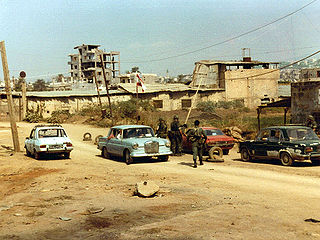
United Nations Security Council resolution 508, adopted unanimously on 5 June 1982, after recalling previous resolutions including 425 (1978), 426 (1978) and 501 (1982), demanded an end of foreign hostilities taking place on Lebanese territory between the Palestinian Liberation Organization and Israel. Israel stressed that they were upset that resolution 508 did not mention or suggest that the Palestine Liberation Organization were to blame for the attack on the Israeli ambassador.

United Nations Security Council Resolution 502 was a resolution adopted by the United Nations Security Council on 3 April 1982. After expressing its concern at the invasion of the Falkland Islands by the armed forces of Argentina, the council demanded an immediate cessation of hostilities between Argentina and the United Kingdom and a complete withdrawal by Argentine forces. The council also called on the governments of Argentina and the United Kingdom to seek a diplomatic solution to the situation and refrain from further military action.
United Nations Security Council resolution 959, adopted unanimously on 19 November 1994, after recalling all resolutions on the situation in Bosnia and Herzegovina including resolutions Resolution 824 (1993) and Resolution 836 (1993), the Council discussed the efforts of the United Nations Protection Force (UNPROFOR) to ensure the implementation of security council resolutions in the safe areas of Bosnia and Herzegovina.

United Nations Security Council resolution 1092, adopted unanimously on 23 December 1996, after recalling all resolutions on Cyprus, particularly resolutions 186 (1964), 939 (1994) and 1062 (1996), the Council expressed concern at the deterioration of the political dispute in Cyprus and extended the mandate of the United Nations Peacekeeping Force in Cyprus (UNFICYP) until 30 June 1997.
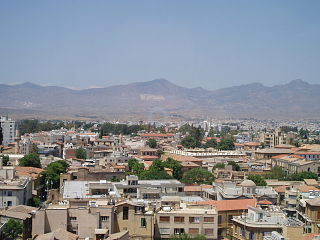
United Nations Security Council resolution 1146, adopted unanimously on 23 December 1997, after recalling all resolutions on Cyprus, particularly resolutions 186 (1964), 939 (1994) and 1117 (1997), the Council extended the mandate of the United Nations Peacekeeping Force in Cyprus (UNFICYP) for a further six months until 30 June 1998.

United Nations Security Council resolution 1178, adopted unanimously on 29 June 1998, after reaffirming all past resolutions on the situation in Cyprus, the Council extended the mandate of the United Nations Peacekeeping Force in Cyprus (UNFICYP) for a further six months until 31 December 1998.
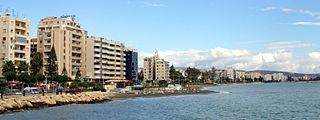
United Nations Security Council resolution 1251, adopted unanimously on 29 June 1999, after reaffirming all past resolutions on the situation in Cyprus, including resolutions 1217 (1998) and 1218 (1998), the Council extended the mandate of the United Nations Peacekeeping Force in Cyprus (UNFICYP) for a further six months until 15 December 1999.
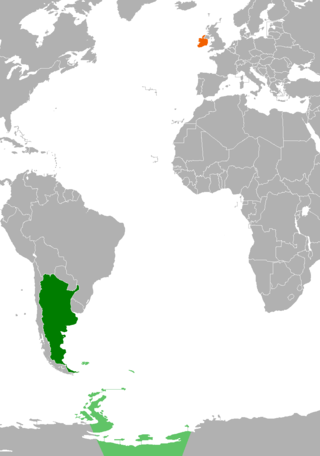
Foreign relations between the Argentina Republic and the Republic of Ireland, have existed for over a century. Both nations share a history of Irish culture due to the fact that over 50,000 Irish settlers migrated to Argentina. Argentina is home to the fifth largest Irish community abroad and the biggest in a non-English speaking nation. Over half a million Argentine nationals claim Irish heritage. Both nations are members of the United Nations.

United Nations Security Council resolution 1403, adopted unanimously on 4 April 2002, after recalling resolutions 1397 (2002) and 1402 (2002), the Council demanded the implementation of Resolution 1402 by the Israeli and Palestinian sides.
United Nations Security Council resolution 1604, adopted unanimously on 15 June 2005, after reaffirming all resolutions on the situation in Cyprus, particularly Resolution 1251 (1999), the Council extended the mandate of the United Nations Peacekeeping Force in Cyprus (UNFICYP) for an additional period until 15 December 2005.
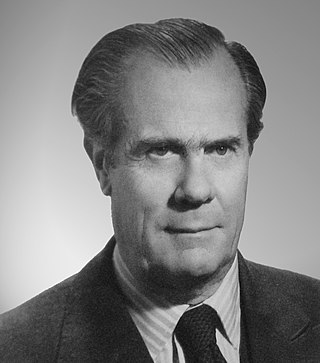
Eduardo Alejandro Roca was an Argentine lawyer, academic, and diplomat. He was Ambassador of Argentina to the United States (1968–1970) and was appointed as a permanent representative to the United Nations during the 1982 Falklands War.
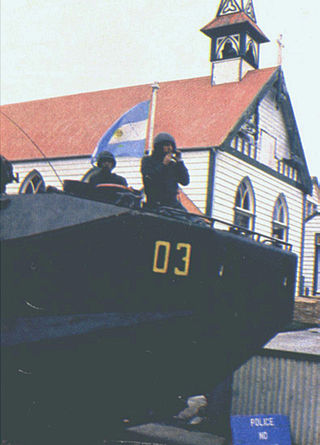
The South Atlantic conflict was a series of crises, undeclared wars, and other conflicts between Argentina, the United Kingdom, and later Chile in the Southern Atlantic Ocean. It was incited by the Argentine navy's prevention of the UK's reoccupation of its territories on the Antarctic Peninsula, and included the Falklands War and Invasion of South Georgia. The conflict, despite a large number of stalemates, ultimately ended in British victory.













